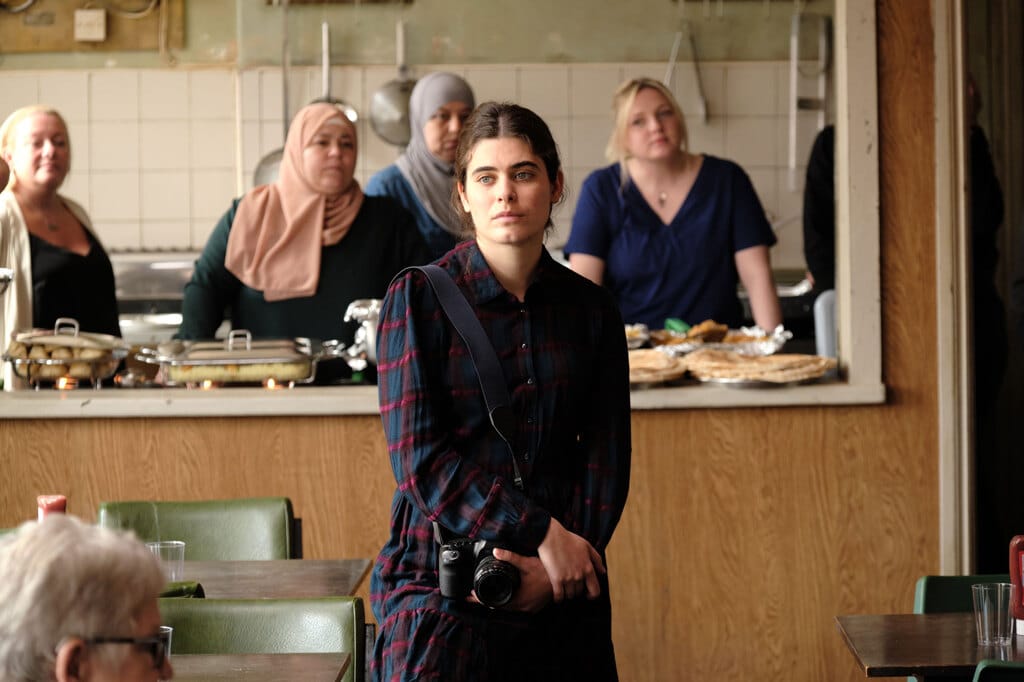
The root of hatred for migrants in Ken Loach’s new film
“It’s a film about connections, don’t you think?”, Ken Loach, 87, immediately asks the audience at the Troisi cinema in Rome, who came to see the preview of his latest film, The old oak, in theaters from 16 November. As the credits roll, the director stops to shake hands and greet people. “I’m really curious to know what you think of this film,” he says as soon as he takes the microphone in his hand.
Twice Palme d’Or at Cannes, Golden Lion for his lifetime achievement, Loach is one of the most important European directors and an activist. Throughout his life, with his films he has tried to tell and investigate the condition of workers and the lower classes, but this is the first work in which he deals with the widespread hostility and racism towards immigrants precisely in these social groups .
“I should have made this film sooner,” he admits. “I and my collaborators were interested in understanding why good people can become hostile towards those who are even more vulnerable than them,” he explains. The old oak is the name of a pub in a small mining town in England. Most of the population worked in the coal mines and in the past there was a very close-knit union. The arrival of a group of Syrians fleeing the war sparks protests, aggression and racism.
“A pub is a meeting place, but that’s where conflicts are best seen,” he says. In fact, in its setting the film is reminiscent of Emmanuel Carrère’s short reportage In Calais (Adelphi 2016). Like the French novelist, Loach chose to tell the way in which a provincial town reacts to the arrival of foreigners, starting from what happens in a pub.
“We were inspired by true events: for example the scene of the attack on the Syrian bus really happened. Some of the actors are activists, involved in welcoming refugees”, says the British director, who wrote the screenplay together with his historical collaborator, Paul Laverty. Filming lasted six months, but the work on the film lasted about two years. Many of the facts narrated date back to 2016, one of the most critical years for the arrival of thousands of refugees in Europe.
In England the miners were the workers who had “the deepest political consciousness”. But over time “they were destroyed by Prime Minister Margaret Thatcher. Thus the most united mining communities gradually disintegrated.”
According to Loach, it is an enormous contradiction that the most politically united and internationalist communities in his country have become over the years the most hostile to foreigners, and the root of the hatred lies precisely in that disintegration and isolation: “They had this great sense of solidarity and mutual support, but the effects of this disintegration have left them angry and vulnerable to far-right propaganda. We wanted to tell this story, together with the arrival of the Syrian refugees. At that point there were two communities: one left with nothing and the other equally abandoned, but with the trauma of a war behind them, in a country whose language they didn’t even know. The question was: can they find a way to move forward? Will bitterness, anger, far-right propaganda or the ancient solidarity of workers win?”
In the film Loach decides to leave the door open to hope: two women – one British and one Syrian – ask the pub owner, TJ Ballantyne (Dave Turner), to open the back room, which has been disused for a long time, and to organize a canteen. for the poor where both Syrian refugees and former English miners can sit side by side, exactly as happened in the past during the long workers’ strikes, traces of which remain in the black and white photos hanging on the walls. Being companions means exactly this, sharing bread. From this initiative begins the possibility of an acquaintance between the two groups apparently so distant, and a new history.
“Initiatives like the ones we talk about in the film are widespread throughout Europe: it is not just a romantic idea that there can be bottom-up solidarity activities with refugees. There was no preparation on the part of the government or local authorities when the refugees arrived in the UK in 2016, it was the citizens who dealt with them. Not all, some. But this is not an illusion, a hope, it is what already happens, it is what we already are”, explains Loach. In this work the director recovers a faith in the near and in the future that he seemed to have lost in the film about gig economy workers Sorry we missed you.
“I believe that another world is still possible, absolutely. There is an old American slogan that says: ‘Agitate, educate, organize’. The problem we have on the left is not that we don’t have active and supportive people, but that we allow power to divide us. The urgency is to be united. We have a leadership problem, sure. But unity and solidarity are the first stones we need, together with the recognition that those fleeing war and hunger are the same as those fighting against the exploitation of work.”
Loach, who announced his retirement from cinema, pronounces his words with clarity and passion, claiming that The Old Oak is his last film. But no one really believes that he can retreat when he harangues his audience by saying: “We have the same class enemies and we must fight them on every front. The unions must be at the forefront of reception, we must organize together. The irony is that we sing The International, but the real internationalists are the multinationals, and their songs are about patriotism. When will we wake up?”
A racist government after Brexit
According to Ken Loach, the current British conservative government, led by Rishi Sunak, is “racist”: it has been the promoter of several very questionable initiatives such as the agreement to deport asylum seekers to Rwanda, the measures to stop boats crossing the canal of the Channel and the confinement of asylum seekers on the ship Bibby Stockholm. But for the director the problem is that the institutional left does not seem to express alternative points of view on the topic.
On 14 November, Home Minister Suella Braverman was replaced in a government reshuffle and on 15 November the British Supreme Court defined as “illegal” the agreement with Kigali which provided for the deportation of asylum seekers who arrived in the United Kingdom irregularly .
One of the issues, according to him, is the inadequacy of the Labor Party, which is ahead in the polls for the 2024 general elections: “They are against the deportations of migrants to Rwanda, but they continue to say they are also against ‘illegal’ immigration, when we all know there is no legal way to get to the UK. So they too act in a kind of commedia dell’arte.”
Loach thinks that European governments have great responsibilities, which they do not want to deal with: “My country waged an illegal war in Iraq and Afghanistan, forced many people to leave their countries, was responsible for part of the flows migrants arriving in Europe. And now he wouldn’t want to deal with the consequences. And even the leaders of the left say nothing. We have many social movements in Europe, but we have a leadership problem.”
This article is originally published on internazionale.it





